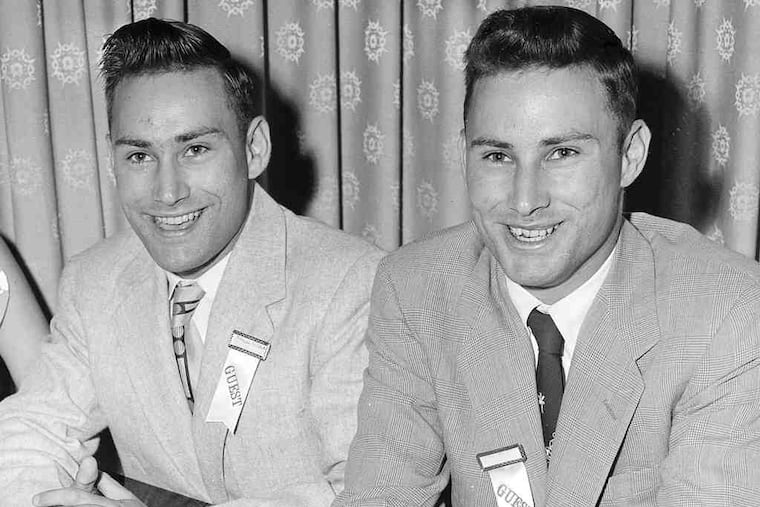Ronald Herrick, 1st organ donor
PORTLAND, Maine - Ronald Lee Herrick, 79, who donated a kidney to his dying twin brother 56 years ago in what is recognized as the world's first successful organ transplant, died Monday of complications after heart surgery.

PORTLAND, Maine - Ronald Lee Herrick, 79, who donated a kidney to his dying twin brother 56 years ago in what is recognized as the world's first successful organ transplant, died Monday of complications after heart surgery.
Mr. Herrick died at a rehabilitation center in Augusta, his wife, Cynthia, said. He had been in deteriorating health since his October surgery, she said.
Mr. Herrick gave a kidney to his twin, Richard, at what is now Brigham and Women's Hospital in Boston. The 51/2-hour operation on Dec. 23, 1954, kept Richard Herrick alive for eight years and was the first successful organ transplant, according to the United Network for Organ Sharing. Lead surgeon Joseph Murray went on to win a Nobel Prize.
The operation proved that transplants were possible and led to thousands of other successful kidney transplants and ultimately the transplant of other organs.
Doctors had tried a handful of transplants worldwide without success to that point, said Murray, who went on to perform 18 more transplants between identical twins.
"This operation rejuvenated the whole field of transplantation," Murray, 91, said in an interview from his home in Wellesley, Mass.
Ronald Herrick was raised on a family farm in Rutland, Mass., where he graduated from high school. He later served in the Army.
At 23, he was glad to give up a kidney if it would help his brother, who was dying from chronic nephritis. Murray thought the odds of a transplanted organ being accepted would be enhanced because the men were identical twins.
Before the operation, many people opposed the idea of transplanting a body organ, equating it with desecration of a body. Others thought it was unethical to operate on healthy humans, and respected editors of medical journals wrote that it was contrary to the Hippocratic Oath's vow to never do harm to anyone, Murray said.
But Mr. Herrick never wavered, and the operation went on as planned with no complications. Richard Herrick met his future wife, Clare, in the recovery room, where she was a nursing supervisor.
Ronald and Cynthia Herrick married in 1959 and moved to Maine in 1968. He taught math for 37 years, in Massachusetts and Maine. He also raised cows and cut hay for decades on a small farm he bought in Mount Vernon.
Mr. Herrick and Murray marked the 50th anniversary of the operation at the National Kidney Foundation's 2004 U.S. Transplant Games in Minnesota, foundation spokeswoman Ellie Schlam said.
Mr. Herrick and Murray together lit the flame to kick off the games, an Olympic-style event for athletes who have received organ transplants.